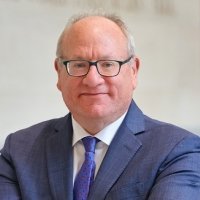Kennan Long View Series | There is Nothing for You Here
Fiona Hill is among the leading Western experts on Russia and the former Soviet Union. Her distinguished career has combined government service, work at the Brookings Institution and many publications. In her widely acclaimed book, There Is Nothing for You Here, Fiona Hill has synthesized memoir, history, political analysis and policy recommendations. One of its subjects is Putin’s Russia—how it came into being and what its foreign policy is. Another of its subjects is the dilemma of inequality and of class- and gender-based prejudice in Russia as well as in the United Kingdom and the United States.
In this episode of “The Long View,” we addressed Russia’s invasion of Ukraine, which started on February 24, 2022 and which post-dates the publication of this book. We will also took into account the deep history behind this war, into which There Is Nothing for You Here offers many insights.
Key Takeaways
- Hill observed parallels between economic conditions in Donbas, her childhood home in Northern England, and U.S. industrial cities. These regions were once home to coal mines and steelworks before they experienced the effects of deindustrialization. The resulting economic grievances contributed to the rise of populist leaders in these countries; Hill called Vladimir Putin the "first populist president” of the 21st century.
- When Hill started to work in public-facing positions, she received gendered harassment and abuse. She faced specific challenges when presenting research that ran counter to popular opinion, including being called a conspiracist. Hill’s advice is not to take personal attacks seriously; they tend to reflect someone’s personal ambitions rather than the policy issue at hand. Let your scholarship and work stand for itself.
- Finland and Sweden are on track to joining NATO. Considering the debate surrounding NATO expansion, this serves as a reminder that countries apply to join NATO as the result of a democratic process based on current risk assessment. For example, the first countries to apply to NATO post-Cold War—Poland, Hungary, and the Czech Republic—all shared the experience of being invaded by fellow members of the Warsaw Pact.
Speaker

Moderator

Hosted By

Kennan Institute
After more than 50 years as a vital part of the Wilson Center legacy, the Kennan Institute has become an independent think tank. You can find the current website for the Kennan Institute at kennaninstitute.org. Please look for future announcements about partnership activities between the Wilson Center and the Kennan Institute at Wilson Center Press Room. The Wilson Center is proud of its historic connection to the Kennan Institute and looks forward to supporting its activities as an independent center of knowledge. The Kennan Institute is committed to improving American understanding of Russia, Ukraine, Central Asia, the South Caucasus, and the surrounding region through research and exchange. Read more
